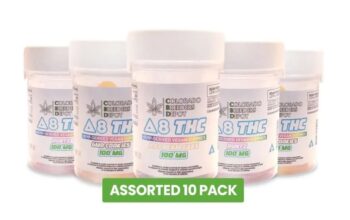Trademarks assist consumers in identifying and purchasing items or services from a certain source. They are a type of intellectual property, which means they may be legally protected. Trademark law protects trademarks by making it unlawful to use someone else’s trademark without permission or to attempt to mislead customers into thinking they’re purchasing from one firm when they’re actually purchasing from another.
Trademark registration services also give brand protection, which is advantageous for businesses that wish to establish their own brand awareness in the marketplace as well as brand identification for themselves and their business partners (e.g., suppliers).
A trademark is a term, symbol, or other device that is used to differentiate one product or service from another.
It is vital to realise that trademarks do not only protect names; they may also protect logos, graphics, and phrases. The most prevalent use of this sort of intellectual property is in the form of brand names: if you’ve ever seen two rival firms’ logos side by side on their products (such as Coke vs Pepsi or Burger King vs McDonald’s), you know how powerful brand recognition can be for advertising!
Before you file a trademark, consider if you want to keep your company’s name or trade name private.
If your company has utilised one or more trademarks over time and is recognised by the public as the originator of such marks (for example, “Toyota,” “McDonald’s”), this can be quite valuable. It implies that if other firms try to utilise comparable items in their stores and advertising efforts, they will have to pay more money. If a firm attempts to imitate your brand but fails due to its reputation as the original, it may end up losing money rather than profiting from product sales!
However, if no one knows who owns something, or even if someone does, such names may not be legally protected. This is why many firms wait until after they open their doors to register their trademarks; otherwise, there are no restrictions limiting how long protection lasts after given by federal agencies such as the USPTO (United States Patent and Trademark Office) or ASIC (Australian Securities & Investment Commission).
Patent applications can be assessed and decided in months rather than years.
On average, the Trademark Office examines US trademark applications within six months of receipt. The USPTO aims to complete up to 95% of all trademark applications within one year of receipt, however this varies on the state of your application when it is submitted (for example, if you’re just starting out or have an old application).
Trademarks also safeguard your brand name.
A trademark is a term, symbol, or design that identifies and differentiates your firm from others in the marketplace. It can be used as an adjective (e.g., “The Coca-Cola Company”) or as a noun (e.g., “The Coca-Cola Company”) (e.g., “Coke”). A trademark also protects any colour scheme associated with your business—for example, if you sell coffee beverages in green packaging but have no other distinguishing marks (other than the words “coffee” and/or “drink”) on them, those colours will be considered part of your trademarked logo and cannot be copied by anyone else who uses similar packaging materials in their own products without first obtaining permission from you!
Trademarks may be extremely significant assets for your business.
When you register a trademark, you are indicating to people who you are and what you do. In fact, trademarks may be your company’s most valuable asset in a competitive sector, and they’re frequently the first step in establishing yourself as an expert on whatever subject area your product or service covers.
If you choose to use a name for which someone else already owns (or is using) a trademark, you may face legal implications if another party disputes the validity of your registration on the basis of their claim to ownership over that name.
Trademarks are a type of intellectual property that can assist you prohibit others from utilising confusingly similar or identical markings on your products. A trademark is a term, name, symbol, or device that identifies and differentiates the goods of your firm from those of other businesses. In other words, it assists consumers in determining who creates something and where they may get it.
Trademarks are commonly used to safeguard against competition by prohibiting others from using confusingly similar or identical marks on items in the marketplace—and here is where trademarks come into play: they give legal protection against unlawful use of someone else’s mark (aka “infringement”).
Companies such as Apple and Samsung wield enormous control over the design and functionality of their goods. In order to maximise revenues, they may determine how their products appear, feel, and function.
This implies that if you want your corporate name on a popular device like an iPhone or Galaxy S8, you’ll have to pay hundreds of thousands of dollars—and that’s just for brand awareness! It excludes any actual funds spent on development or marketing initiatives.
If you trademark anything and someone else uses it in the United States, they must pay you a yearly royalty.
If you trademark your company name, others will be unable to call their products “Product X” unless they obtain a licence from you. This is referred to as a “brand protection” trademark, and it allows businesses to prevent others from using similar trademarks or confusingly similar or identical marks on things that have nothing to do with the marketed product.
Trademarks can also be used to prohibit others from using confusingly similar or identical marks in connection with your goods or services (such as if someone uses your product’s logo on their website).
What are the implications of trademarks for a small business?
Trademarks can be used to protect the name, logo, and brand of your firm. They can also be used to prohibit others from utilising your name or trademark on marketable items.
Trademarks are not only for large corporations; they may also apply to small firms. If you have a brilliant concept for an innovation or product but lack the money to put it into production, trademarking it will let potential consumers who see what you’re doing know that it’s yours and that they should not infringe on it without first obtaining permission from you!
Important information regarding trademarks
Trademarks are an important asset for any company. They let you to protect and register your brand name while also preventing others from utilising confusingly similar or identical markings on your items.
Trademarks might help you avoid customer uncertainty about who creates or sells what. For example, if you have a well-known actor on your team, it may be tough for someone else to utilise his name without his consent (or his agent).




